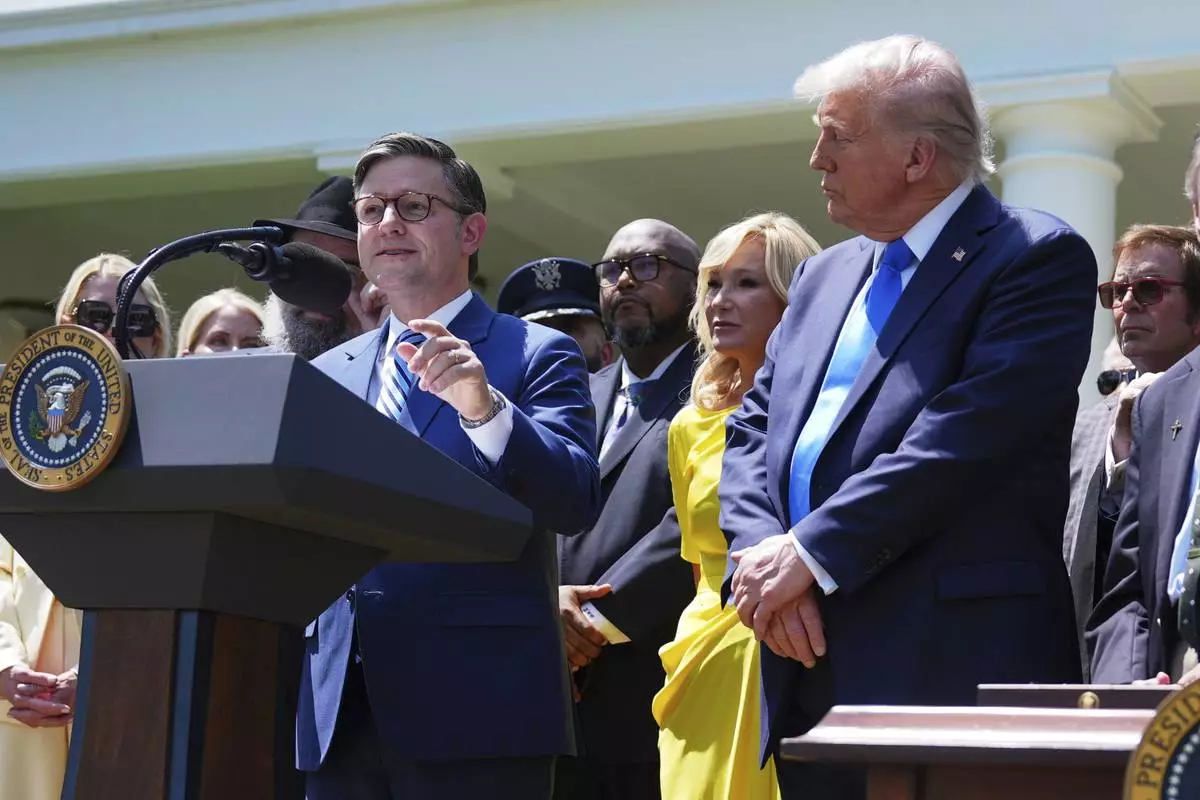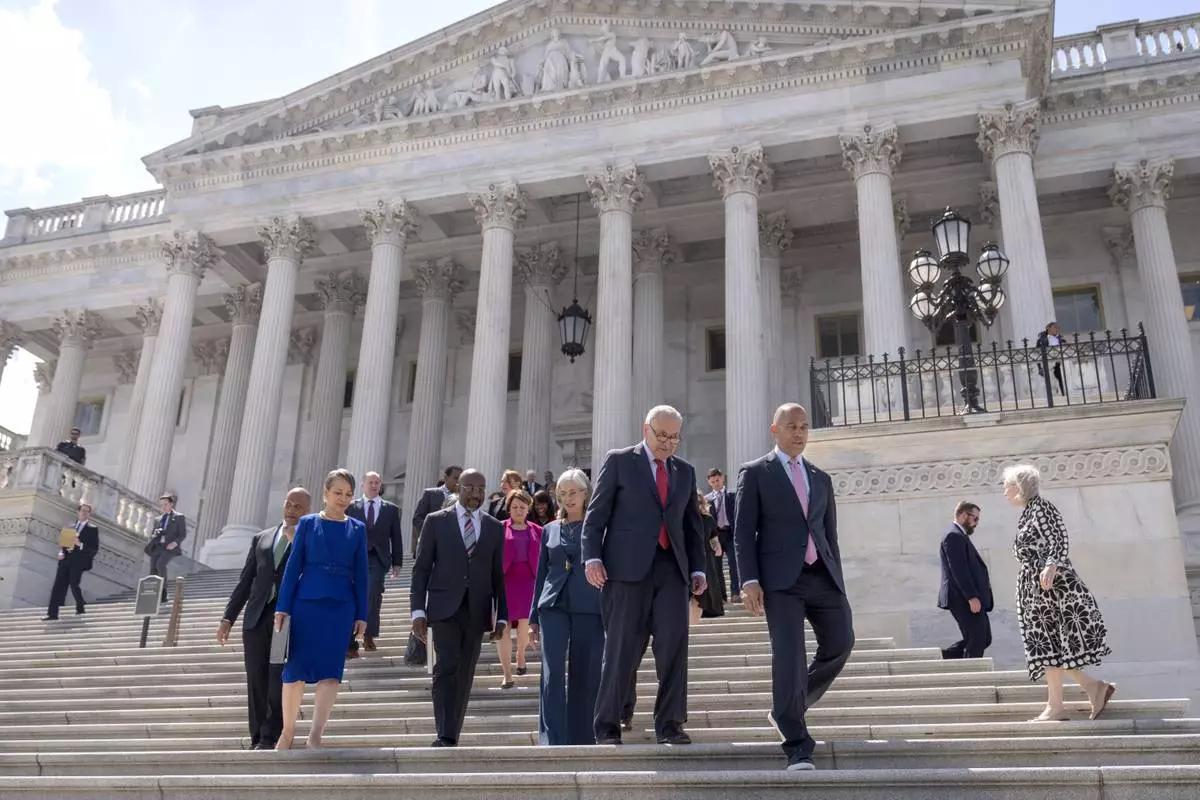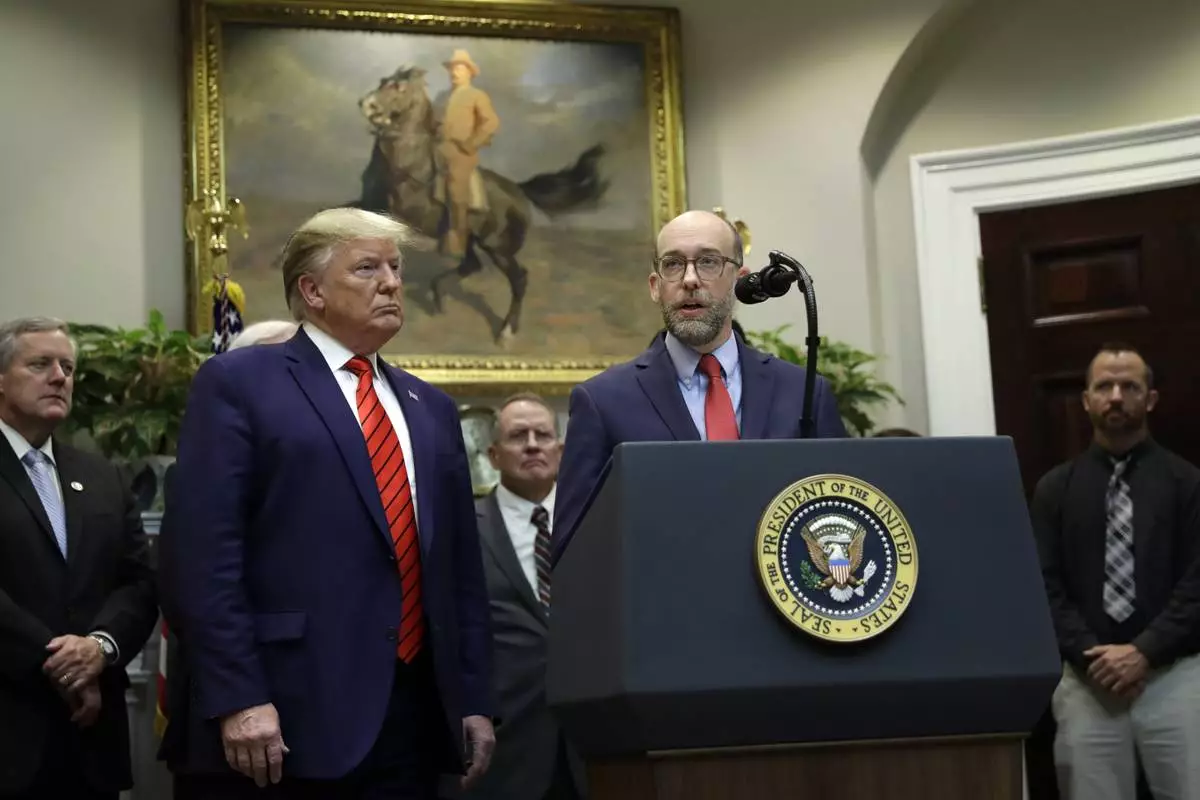This is a sight the Tigers probably expected a lot more often by now: Casey Mize pitching seven strong innings, and Spencer Torkelson hitting a three-run homer to lead Detroit to a 3-1 victory.
There's still time for both of them to make big contributions to the team that drafted them No. 1 overall.
When the Tigers returned to the postseason last year for the first time in a decade, they did it without great production from Mize and Torkelson, who were supposed to be cornerstones of their rebuild. Torkelson hit 31 home runs in 2023 but managed only 10 (with a .219 average) last season. Mize made only two starts total in 2022 and 2023 before going 2-6 with a 4.49 ERA a year ago.
Now both of them are starting to show why they were taken at the top of the draft — Mize in 2018 and Torkelson two years later. The 27-year-old Mize is 3-1 with a 2.22 ERA this season. Torkelson, who is still just 25, already has seven home runs and a .288 average that is well above his career high of .233. On Saturday, Mize got the win and Torkelson accounted for all Detroit's scoring in a victory over Kansas City.
After relying heavily on Cy Young Award winner Tarik Skubal in their run to a wild card last year, the Tigers are off to a more balanced start in 2025. Only two AL teams have scored more runs than Detroit, which leads the AL Central by a half-game over Cleveland. Only one AL team, the New York Yankees, has a better run differential than the Tigers.
The Chicago Cubs became the seventh team in the last 125 seasons to allow 10 runs in an inning and still win. Arizona scored 10 in the top of the eighth on Friday, only for Chicago to rally with six in the bottom half and win 13-11.
Remarkably, the Colorado Rockies nearly matched the Diamondbacks' plight a day later. Colorado scored eight runs in the seventh Saturday but still lost 12-11 to Washington. Also Saturday, Miami scored six in the ninth but lost 11-10 to Philadelphia.
Other big innings from this past week included a nine-run third by Tampa Bay against Boston on Monday, a seven-run first by the Los Angeles Dodgers against Colorado on Wednesday, and a seven-run third by Cincinnati against Baltimore on Sunday. The Rays, Dodgers and Reds all won.
The Milwaukee Brewers broke a franchise record by stealing nine bases in their 14-1 win over the Athletics on Sunday. The Brewers stole eight bases against Toronto on Aug. 29, 1992.
Which Milwaukee player, who went on to win Rookie of the Year honors that year, stole three bases in that 1992 game?
Cincinnati's Austin Wynns had six hits in the Reds' 24-2 blowout of Baltimore on Sunday, although the last two of those came against position players pitching. Wynns also drove in six runs.
Wynns had seven hits and two RBIs all of last season for Cincinnati.
After entering the game with a four-run lead in the ninth Saturday, struggling Yankees closer Devin Williams managed to retire only one batter before Tampa Bay tied it. Williams allowed five straight hitters to reach, culminating in Brandon Lowe's tying two-run single. Williams managed to induce a double play to end the inning, but Tampa Bay went on to win 10-8 on Jonathan Aranda's 10th-inning two-run homer.
The Rays had a win probability of 0.6% in the ninth, according to Baseball Savant.
Williams hasn't blown a save this season — Saturday's game wasn't a save situation — but he's now allowed eight earned runs in eight innings.
Pat Listach had three of Milwaukee's eight steals in that game. He went on to finish the season with 54, second in the American League to Cleveland's Kenny Lofton.
AP MLB: https://apnews.com/hub/mlb

Detroit Tigers' Spencer Torkelson reacts after hitting a three-run home run off Kansas City Royals starting pitcher Seth Lugo during the fifth inning of a baseball game, Saturday, April 19, 2025, in Detroit. (AP Photo/Jose Juarez)

Detroit Tigers starting pitcher Casey Mize throws during the first inning of a baseball game against the Kansas City Royals, Saturday, April 19, 2025, in Detroit. (AP Photo/Jose Juarez)
WASHINGTON (AP) — President Donald Trump's 2026 budget plan would slash non-defense domestic spending by $163 billion while increasing expenditures on national security, according to White House statements Friday.
The plan shows a desire to crack down on diversity programs and initiatives to address climate change. But it doesn't include details about what Trump wants on income taxes, tariffs, entitlement programs or the budget deficit — a sign of the challenge confronting the president when he's promising to cut taxes and repay the federal debt without doing major damage to economic growth.
Budgets do not become law but serve as a touchstone for the upcoming fiscal year debates. Often considered a statement of values, this first budget since Trump's return to the White House carries the added weight of defining the Republican president's second-term pursuits, alongside his party in Congress.
House Speaker Mike Johnson, R-La., said the plan showed fiscal discipline given the problems of persistently high budget deficits. The budget released on Friday did not, in fact, include a forecast on government borrowing.
“President Trump’s plan ensures every federal taxpayer dollar spent is used to serve the American people, not a bloated bureaucracy or partisan pet projects,” Johnson said.
Sen. Patty Murray, D-Wash., said the cuts could ultimately be more extreme than what the administration has proposed, noting that the budget doesn't provide funding levels for programs such as Head Start.
“President Trump has made his priorities clear as day: he wants to outright defund programs that help working Americans while he shovels massive tax breaks at billionaires like himself and raises taxes on middle-class Americans with his reckless tariffs," Murray said.
The budget seeks to cut discretionary spending by a total of 7.6% next year, but includes a 13% increase in national security spending.
The State Department and international programs would lose 84% of their money and receive $9.6 billion, a cut that reflects the existing efforts by adviser Elon Musk’s Department of Government Efficiency.
The Housing and Urban Development Department would get a $33.6 billion cut, while the Health and Human Service Department would receive $33.3 trillion less and the Education Department's spending would be reduced by $12 billion.
The Defense Department would get an additional $113.3 billion and Homeland Security would receive $42.3 billion more.
The IRS and FBI would lose money, while the Low Income Home Energy Assistance Program would be ended. There would be $980 million less for college students in work-study programs, as well as similarly sized cuts for adult education and instruction for learning English.
The Centers for Disease Control and Prevention would lose nearly $3.6 billion under the plan, while the National Institutes of Health would face a steep cut of almost $18 billion. The budget would eliminate more than $15 billion for infrastructure-related programs tied to climate change and $1.3 billion from the National Oceanic and Atmospheric Administration.
The White House budget plan arrives as Trump has unilaterally imposed what could hundreds of billions of dollars in tax increases in the form of tariffs, setting off a trade war that has consumers, CEOs and foreign leaders worried about a possible economic downturn.
The White House's Office of Management and Budget, headed by Russell Vought, a chief architect of Project 2025, provided contours of a so-called skinny version of topline numbers only regarding discretionary spending. Administration officials said a fuller budget will come soon with plans to address the drivers of the annual deficit.
The nation's estimated $7 trillion-plus federal budget has been growing steadily, with annual deficits fast approaching $2 trillion and the annual interest payments on the debt almost $1 trillion. That's thanks mostly to the spike in emergency COVID-19 pandemic spending, changes in the tax code that reduced revenues and the climbing costs of Medicare, Medicaid and other programs, largely to cover the nation's health needs as people age. The nation's debt load, at $36 trillion, is ballooning.
Democrats are prepared to assail Trump's budget as further evidence that the Republican administration is intent on gutting government programs that Americans depend on.
Congress is already deep into the slog of drafting of Trump's big bill of tax breaks, spending cuts and bolstered funds for the administration's mass deportation effort — a package that, unlike the budget plan, would carry the force of law.
But deep differences remain among the Republicans, who are trying to pass that big bill over the objections of Democrats.
"We are awaiting some final calculations on a few of the tax components, and we expect to be able to complete that work on a very aggressive schedule,” Johnson said.
It's Congress, under its constitutional powers, that decides the spending plans, approves the bills that authorize federal programs and funds them through the appropriations process. Often, that system breaks down, forcing lawmakers to pass stopgap spending bills to keep the government funded and avoid federal shutdowns.
Vought is also expected on Capitol Hill in the weeks ahead as the Trump administration presses its case to Congress for funds.
Among the more skilled conservative budget hands in Washington, Vought has charted a career toward this moment. He served during the first Trump administration in the same role and, for Project 2025, wrote an extensive chapter about the remaking of the federal government.
Vought has separately been preparing a $9 billion package that would gut current 2025 funding for the U.S. Agency for International Development and the Corporation for Public Broadcasting, which involves the Public Broadcasting Service and National Public Radio. Trump signed an executive order late Thursday that instructs the Corporation for Public Broadcasting and federal agencies to cease funding for PBS and NPR.
Vought has said that package of so-called budget rescissions would be a first of potentially more, as the Trump administration tests the appetite in Congress for lawmakers to go on record and vote to roll back the money.

House Speaker Mike Johnson, R-La., speaks as President Donald Trump, right, listens during a National Day of Prayer event in the Rose Garden of the White House, Thursday, May 1, 2025, in Washington. (AP Photo/Evan Vucci)

Senate Minority Leader Chuck Schumer, of N.Y., second from right, and House Minority Leader Hakeem Jeffries, of N.Y., right, arrive with other House and Senate Democrats for an event to mark 100 days of President Donald Trump's term on the steps of the Senate on Capitol Hill, Wednesday, April 30, 2025, in Washington. (AP Photo/Mark Schiefelbein)

FILE - President Donald Trump listens as acting director of the Office of Management and Budget Russ Vought speaks during an event on "transparency in Federal guidance and enforcement" in the Roosevelt Room of the White House, Oct. 9, 2019, in Washington. (AP Photo/Evan Vucci, File)























































